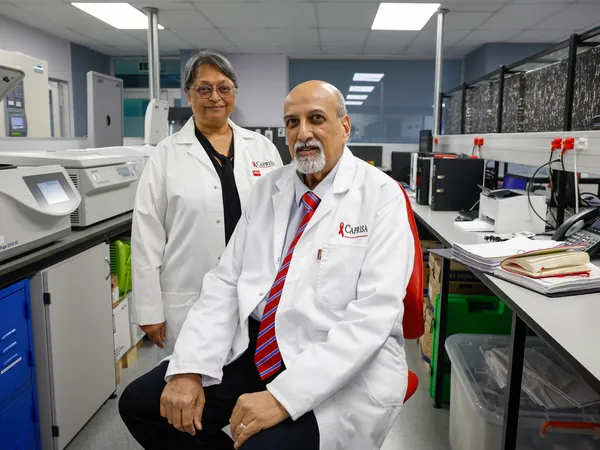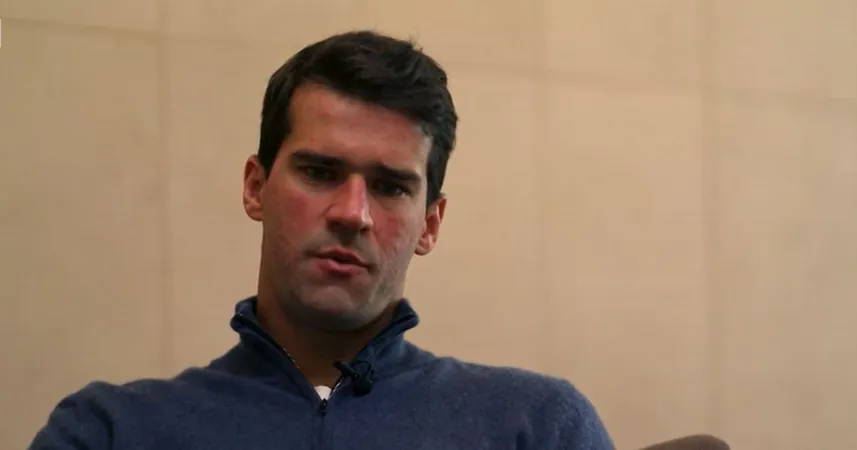
Meet the South African Power Couple Who Revolutionized HIV Research and Just Won 'America's Nobel'!
2024-09-30
In the midst of the 1980s AIDS epidemic, HIV was widely perceived as primarily affecting gay men in the U.S. However, groundbreaking research by South African scientists Salim and Quarraisha Abdool-Karim turned this outdated narrative on its head. Their pioneering work revealed that young women in South Africa were disproportionately affected by the virus, prompting them to take innovative measures to combat the health crisis.
The couple’s love story began during their university days, where they crossed paths over a temperature-controlled ultracentrifuge. Their whirlwind romance led to a long-distance relationship when Salim moved to Columbia University in New York, ultimately culminating in their marriage. Quarraisha later joined Salim in New York, and together they forged a formidable partnership both personally and professionally.
Recently, the Abdool-Karims were honored with the prestigious Lasker Prize, often dubbed "America's Nobel," in the public service category. The award recognizes their vital contributions to HIV research, which include uncovering the critical factors behind heterosexual HIV transmission and advocating for effective public health policies. With a prize of $250,000, the recognition highlights over three decades of commitment to combating HIV/AIDS.
Growing up as part of the South African Indian community during the apartheid era, Salim and Quarraisha faced significant challenges, including substantial discrimination and limited educational opportunities. Their backgrounds fueled their determination; both were active in the anti-apartheid movement and pursued careers in science despite societal obstacles.
In the early stages of the HIV pandemic, the couple conducted groundbreaking research that revealed stark disparities in infection rates among South African youth. They discovered that while HIV prevalence was low among teenage boys, it was alarmingly higher among teenage girls—often due to relationships with older men. Recognizing the urgent need for preventative measures, they dedicated themselves to developing a method that would empower women to protect themselves.
Their efforts culminated in a major breakthrough in 2010 with the introduction of Tenofovir gel, a vaginal application that significantly reduced the risk of HIV infection. Although subsequent findings showed that oral tablets of Tenofovir were just as effective, the gel represented a crucial step in the fight against HIV.
Today, South Africa has made substantial progress in tackling the HIV epidemic, with approximately 8 million people living with the virus and nearly 80% receiving antiretroviral treatment. The Abdool-Karims' research has been instrumental in this success, leading to a notable decline in new infections.
As the couple continues their work, they've recently embarked on studies involving Lenacapovir, an injectable drug that showed exceptional results in preventing HIV when administered biannually. Their research aims not only at improving existing prevention methods but also at creating long-acting technologies that could change the landscape of HIV prevention altogether.
Despite the challenges they have faced throughout their careers—including political denialism during the presidency of Thabo Mbeki—the Abdool-Karims remain steadfast in their mission to educate and empower those at risk of HIV infection.
With the Lasker Prize funds, they plan to invest in further research and mentoring future scientists, aiming to continue their legacy of innovation and advocacy in public health. As both scientists prepare for the next phase of their research, they remain hopeful that advancements in HIV prevention will lead to a healthier, HIV-free tomorrow.
In a lighter moment, Salim shared the origin of his nickname "Slim," a term of endearment that playfully recalls his cleverness during high school. This name reflects not just his intellect but embodies a partnership that continues to break barriers and inspire generations in the field of science and beyond.




 Brasil (PT)
Brasil (PT)
 Canada (EN)
Canada (EN)
 Chile (ES)
Chile (ES)
 España (ES)
España (ES)
 France (FR)
France (FR)
 Hong Kong (EN)
Hong Kong (EN)
 Italia (IT)
Italia (IT)
 日本 (JA)
日本 (JA)
 Magyarország (HU)
Magyarország (HU)
 Norge (NO)
Norge (NO)
 Polska (PL)
Polska (PL)
 Schweiz (DE)
Schweiz (DE)
 Singapore (EN)
Singapore (EN)
 Sverige (SV)
Sverige (SV)
 Suomi (FI)
Suomi (FI)
 Türkiye (TR)
Türkiye (TR)